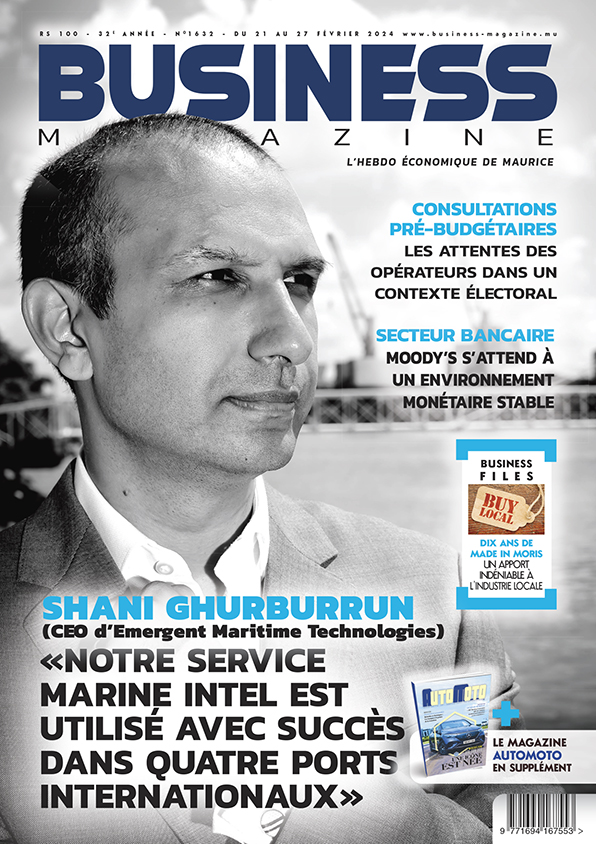Mauritius positions itself for the upturn
Share

The Budget Speech 2023-2024, delivered by Dr. The Hon. Renganaden Padayachy has leveraged on the hard fought and remarkable economic fundamentals for the outgoing fiscal year, to re-affirm Government’s strategies and policies to maintain economic recovery and drive forward the transformation of Mauritius into a modern, sustainable and resilient country.
Despite the COVID-19 pandemic and other significant headwinds such as geopolitical tensions, global supply chain crisis and inflationary pressures which continue to impact economies around the world, the Mauritian economy has made a stronger than expected recovery in 2022. The economic fundamentals were restored to pre-covid levels. We achieved an economic growth of 8.7%, registered inflows of Foreign Direct Investment (FDI) to the tune of MUR 27 billion, generated tourism receipts of MUR 64.8 billion and exported goods and services of a value of over MUR 320 billion.
This year’s Budget builds on these foundations to achieve higher and more ambitious economic objectives, in particular securing GDP growth at 8 % for the incoming fiscal year. Government revenue for the fiscal year 2023-2024 is expected to be MUR 179 billion and expenditure is forecasted at MUR 200 billion, resulting in a deficit of 2.9 % of GDP. Public Debt is expected to fall to 79% of GDP in 2023 and is planned to be further brought down to 71.5 % by June 2024.
In continuity with previous fiscal exercises, this inclusive Budget focuses on helping families, lower-income groups, as well as businesses, without losing focus on the country’s resilience and longer-term needs in an everchanging economic and geopolitical landscape. The tax reforms are clearly the centrepiece of this year’s Budget.
The restructuring of the Income Tax regime is one key and bold fiscal reform aimed at restoring the economy’s competitiveness and bringing about fairness and equity for earners. Income Tax will be imposed through the introduction of a marginal step application of the rates, leading to a reduction in total income tax paid. This reduction in income tax is expected to spur labour supply and increase consumption, thereby contributing to an increase of 0.6% in GDP and creating more than 16,000 jobs.
The social side of this budget also seeks to address the spending power of a considerable tier of the population and lessen the hard-hitting impacts of inflation, with targeted support and allowances to cushion the effects of continuous increases in the costs of living. Other considerable and assertive measures have been outlined, which notably include raising the minimum salary threshold to Rs 15,000. The panoply of social measures is expected to contribute 1.2 % to GDP growth.
Long-term measures and targets as well as incentives for Mauritius to prioritise environmental, social and corporate governance (ESG) have been announced. This will bring sustainability to the fore of our future development and economic strategy. Considerable importance is also being given to climate change policies.
Business facilitation and improvement of the investment climate are given substantial importance in view of achieving higher levels of investment and maintaining the momentum of the economic recovery. New initiatives and reforms will be triggered to further improve our ‘Doing Business environment’, notably with the streamlining of the procedures for the obtention of work permit for foreign workers.
The review of the occupation permit for professionals will bridge talent gaps, addressing jobs and skillset needs of companies. The Budget charts a new way forward for the skilling and reskilling of employees by enhancing the learning and development ecosystem. The “silence is consent” principle is introduced to ensure swift processing of permits and licences.
Innovation continues to be an important way forward with new schemes and enhancements to existing ones to drive innovation and new capabilities as well as quality for our enterprises, MSMEs and workforce. This will help to safeguard our competitive position in the face of new challenges.
The review of legal frameworks to strengthen our Financial Services sector will further consolidate our position as an International Financial Centre of repute and contribute to attract more international players in our jurisdiction.
The EDB will be the lynchpin of these endeavours and will be at the forefront of improving our business environment, leading reforms into actionable frameworks and strategy recommendations, facilitating and attracting investment, and marketing our destination as a prime and reputable choice for investors aggressively, in close collaboration with all stakeholders.
Over the past few years our resilience was tested and we did not yield. Now the time is ripe for Mauritius to position itself for the upturn and capture new opportunities for growth aligned to Government’s long-term vision for an Inclusive, High Income and Sustainable Economy.

















